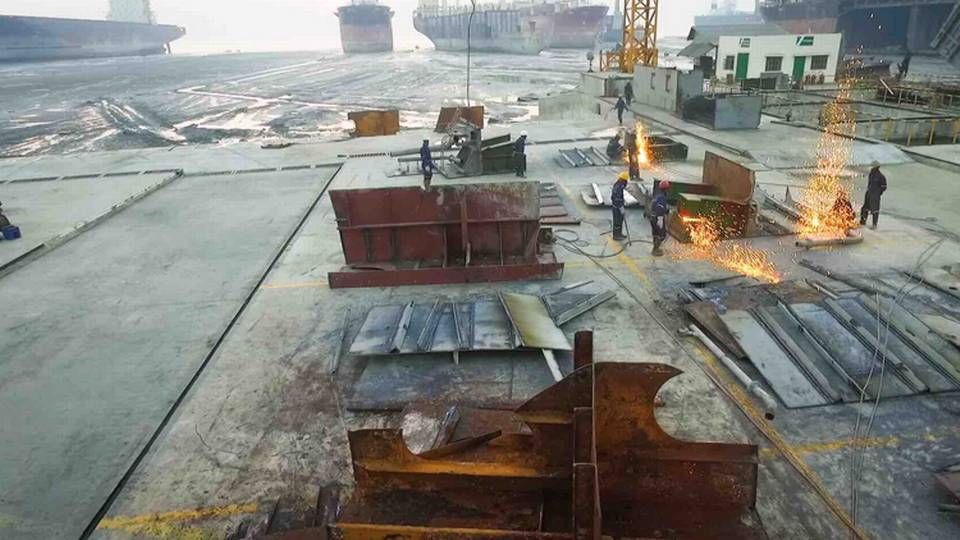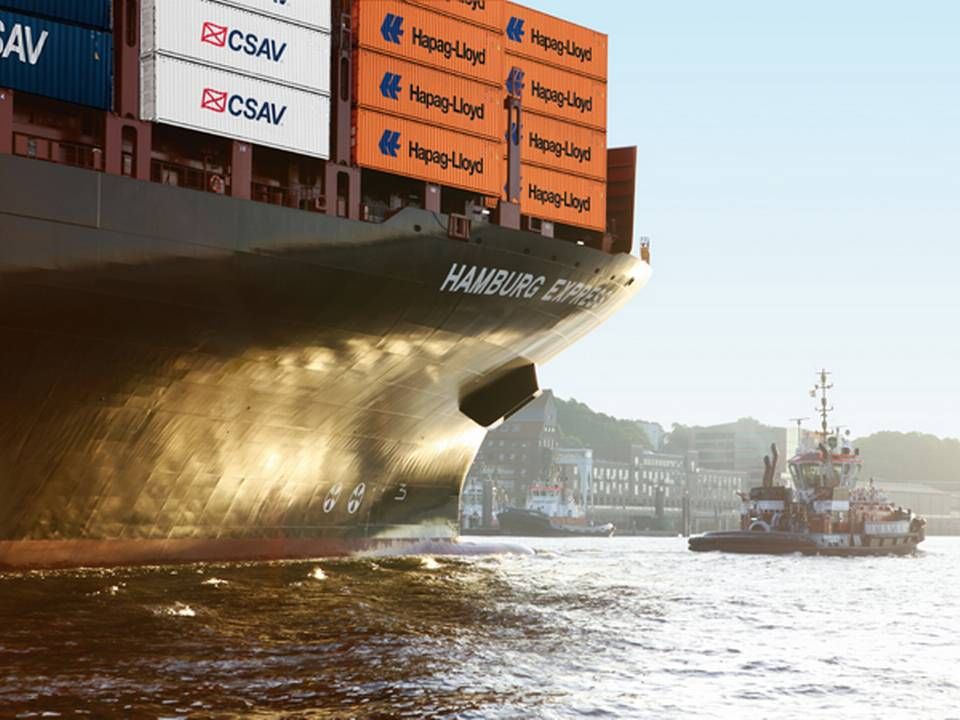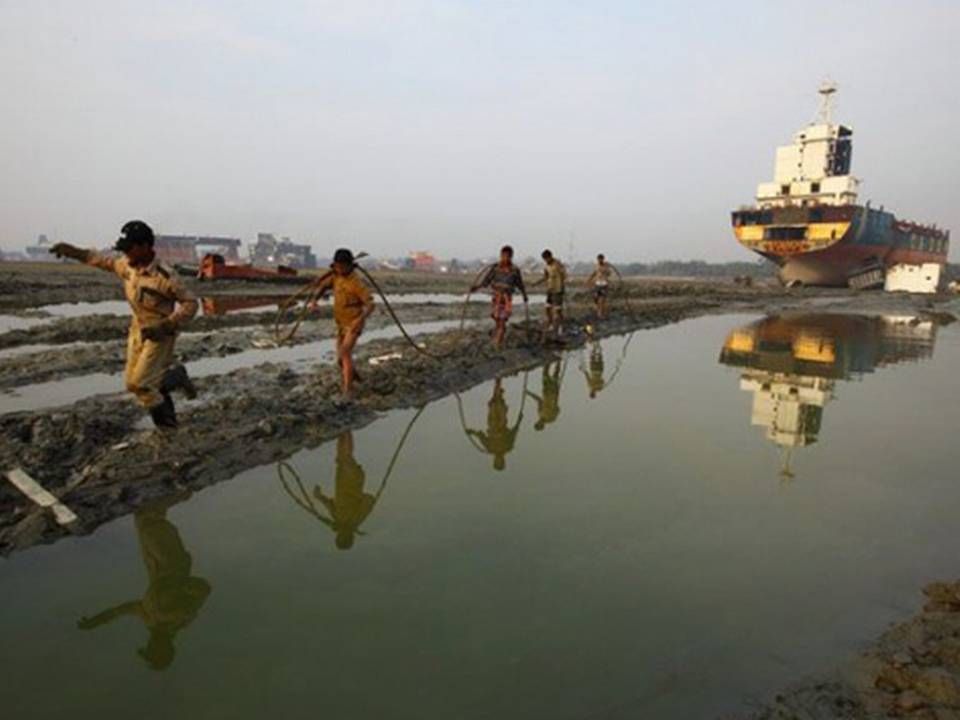Cash buyer criticizes blacklisting: "It's not realistic"

The world's largest cash buyer of end-of-life ships, GMS, is highly skeptical of the Norwegian oil fund's decision to blacklist four carriers because they have sent vessels to be scrapped in Pakistan and Bangladesh.
In an interview with ShippingWatch, the cash buyer says that blacklisting carriers for beaching hurts more than it helps.
According to the fund, human rights are violated while the environment suffers major damage when vessels are dismantled on beaches in South Asia. So far, the fund has dropped its investments in four carriers for using yards in Pakistan and Bangladesh.
But the decision was made on an uninformed basis, says Nikos Mikelis, non-executive director at GMS and former head of ship recycling at the UN International Maritime Organization. He calls for a more nuanced view of shipbreaking i South Asia.
"Is it a good idea for the fund to have an opinion on shipbreaking? Yes, it's certainly admirable because they want to secure higher standards. But they simply don't understand ship recycling if they want to ban two of the countries where the majority of the world's tonnage is scrapped. It's not serious. Where will the ships go?" Nikos Mikelis tells ShippingWatch.
"It would be much better if the fund looked at the individual yards and recognized those which have made big improvements in recent years. If you instead lump them all together, as the fund is doing, then you take away incentive for the yards to improve. And that's the last thing we need at a time where we're actually seeing progress," he says.
Beaching is not the problem
It is the fund's independent Council on Ethics that recommended the Norwegian central bank, which oversees the fund, to blacklist the four Asian carriers Evergreen, Precious Shipping, Korea Line and Thoresen Thai Agency.
According to the council, carriers are knowingly partaking in systematic violations of human rights and international environmental conventions in order to get the highest possible scrap price for their end-of-life vessels.
"It must be considered common knowledge in the shipping sector that the environmental and working conditions of beaching are very poor," read the accompanying reports, which are available on the bank's website.
Mikelis acknowledges that there are problems with pollution and worker safety issues at the yards in Pakistan and Bangladesh. But does not agree that the beaching method of dismantling ships is inherently problematic. Instead he thinks the issue lies in the bad practices at some yards.
"The problems in Pakistan and Bangladesh stem from a lack of training, proper equipment and infrastructure to handle waste. It's not about beaching. There is environmentally friendly beaching and there is dirty beaching. So it's not about beaching in and of itself, but about how you do it," Mikelis tells ShippingWatch.
Dispute over convention
He further stresses that in recent years, there has been major progress at yards in South Asia, where particularly Indian yards have invested in new facilities. According to GMS, half of the yards in Alang are now certified in accordance with the Hong Kong Convention, which Mikelis was involved in developing during his time with the IMO.
He also notes that at least one yard in Bangladesh has improved to the point where it does the secondary cutting of the vessels on an impenetrable floor instead of directly on the sand. This progress is proof, says Mikelis, that beaching can be done in a manner which is justifiable for both the environment and for worker safety.

This opinion is in stark contrast to that of NGO Shipbreaking Platform, which thinks that it is under no circumstance acceptable to scrap merchant vessels on beaches.
The Council on Ethics also finds that the problems with beaching cannot be solved alone by the Hong Kong Convention, said the council's chairman, Johan H. Andreasen, in an interview with ShippingWatch.
Misinterpreting rules
But according to Mikelis, this shows a lack of understanding of the Hong Kong Convention, which he helped draft nine years ago.
He thinks that the fund and other critics need to realize that the regulations in Hong Kong Convention already take into account a complex interplay with other international conventions by UN bodies such as the Basel Convention and ILO on issues of their competence such as the handling of hazardous waste and issues of workers' health and safety.
"If the fund has a problem with the convention, I would say that this is because they have misunderstood the convention The Hong Kong Convention works in unison with the Basel Convention as can be seen for example in its Regulations 3 and 20.4 and together they address the issue of the environmentally sound disposal of hazardous wastes," says Mikelis.
"But it's not certain that the fund's chairman, who is a businessman, knows how different UN agencies work together to make ship recycling more responsible. I am available and would like to help if they care to discuss these issues wit me," he tells ShippingWatch.
According to Shipbreaking Platform, 227 ships were scrapped in the fourth quarter 2017. Of these, 124 wound up on beaches in South Asia.
English Edit: Gretchen Deverell Pedersen
Hapag-Lloyd sends seven vessels to be scrapped in China and Turkey
Why the Norwegian oil fund blacklisted carriers for beaching
Related articles
First shipbreaker in Bangladesh is approved
For subscribers


















